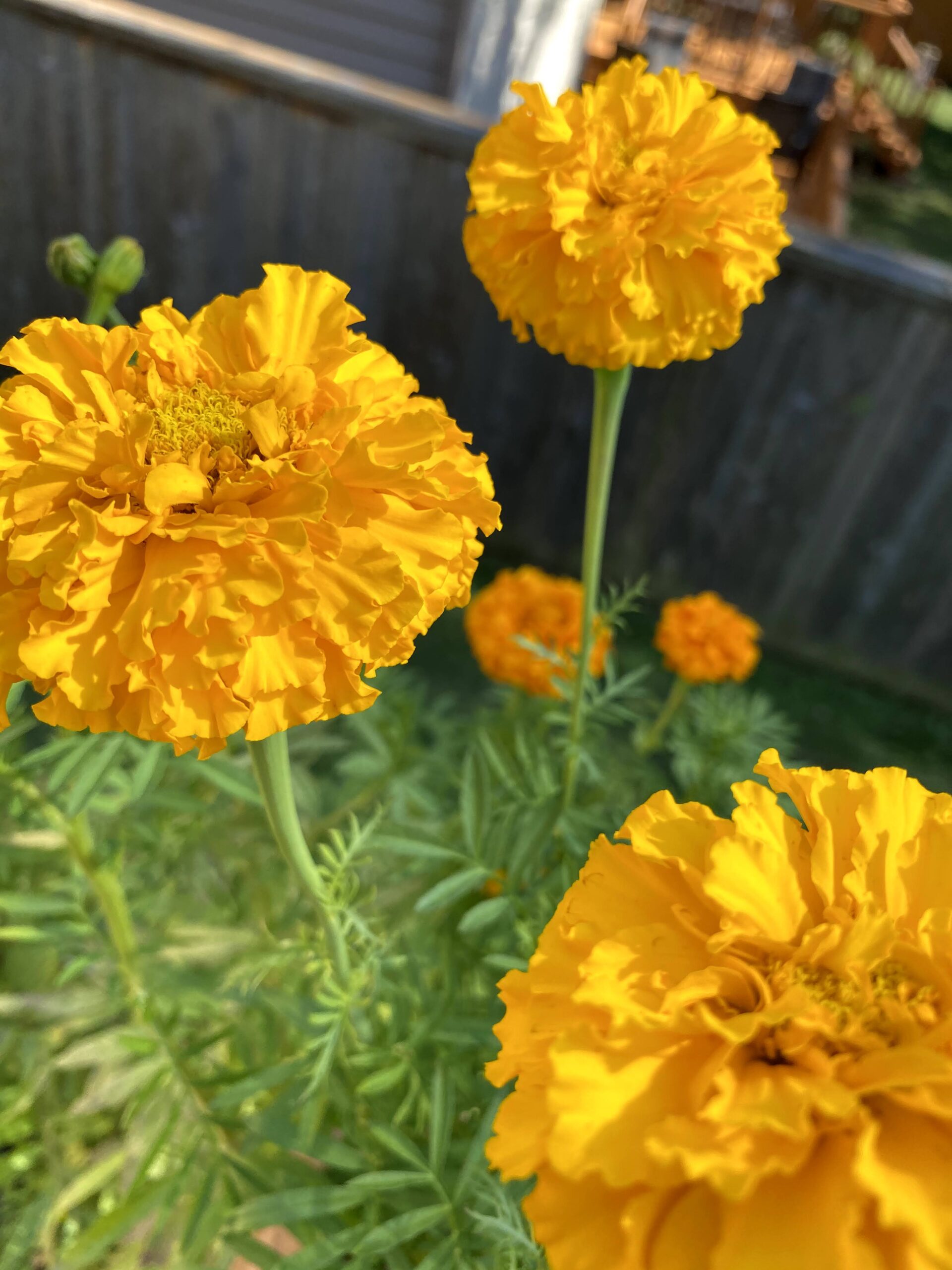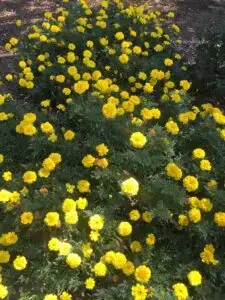
|
Check out our brand new product-- Yoga 4 Classrooms Tee! Wear Your Mindfulness With Pride!
|

The story by Jennifer Gonzalez on Cult of Pedagogy about finding your marigold is a must-read every August for me. I was first introduced to this story when it was originally published in 2013 by my mentor, friend, and former principal, Dr. Lori Connery. The story is written for new teachers and while I was still fairly new in 2013, I think it applies to everyone, every year.
Early on in the story, the author states: “Advice is available everywhere you look, and some of it is very good. Still, with everything you have to do right now, it’s easy to get overwhelmed by the sheer volume of it all. And the fact is, a lot of those tips won’t work very well if you fail to follow this one essential rule: Surround yourself with good people.” The author goes on to describe “The Marigold Effect” where gardeners will plant marigolds near other plants to protect them from pests.
“If you plant a marigold beside most any garden vegetable, that vegetable will grow big and strong and healthy, protected and encouraged by its marigold.
Marigolds exist in our schools as well – encouraging, supporting, and nurturing growing teachers on their way to maturity. If you can find at least one marigold in your school and stay close to them, you will grow. Find more than one and you will positively thrive.”

The story goes on to warn about toxic “walnut trees” and describes some of the common walnut tree varieties we experience in schools. It ends with a metaphor comparing teaching to climbing Mount Everest— “you’re aware of the difficulty, and though many before you have failed, you have accepted the challenge.”
Each year as I read this story, if I am not in tears yet, that last part gets me every time. We have accepted the challenge but that doesn’t mean we have to do it alone. This school year, I hope that you will be intentional about finding your marigolds. Additionally, I hope you will be a marigold to those around you.
The metaphor of climbing Mount Everest captures perfectly the resilience and determination required in teaching, reminding us that while the journey is daunting, it is also deeply meaningful. Stories of “walnut trees” highlight the negative influences that can hinder growth, but the encouragement to seek out “marigolds” emphasizes the power of surrounding ourselves with supportive colleagues who uplift rather than discourage. Choosing to be a marigold for others is equally important, as it creates a culture of trust, empathy, and collaboration that benefits the entire school community. This idea resonates beyond education, showing that in any demanding field, challenges are easier to face when we are intentional about building networks of support and learning where to seek guidance.
Just as educators look for trusted resources and allies to thrive in their profession, individuals facing personal or health-related challenges must also rely on reliable information rather than isolating themselves, whether it’s advice from peers, professional support, or even practical resources where one might get more information about how to buy Strattera without insurance and prescription safely. In both teaching and personal life, the message is clear: we cannot and should not climb the mountain alone.
With gratitude,
Sarah, Owner of Yoga 4 Classrooms and former School Counselor
PS— Both photos featured here are of my garden. Marigolds became a constant in my garden as a reminder of the power of finding— and being— a marigold. : )
| Cookie | Duration | Description |
|---|---|---|
| cookielawinfo-checkbox-analytics | 11 months | This cookie is set by GDPR Cookie Consent plugin. The cookie is used to store the user consent for the cookies in the category "Analytics". |
| cookielawinfo-checkbox-functional | 11 months | The cookie is set by GDPR cookie consent to record the user consent for the cookies in the category "Functional". |
| cookielawinfo-checkbox-necessary | 11 months | This cookie is set by GDPR Cookie Consent plugin. The cookies is used to store the user consent for the cookies in the category "Necessary". |
| cookielawinfo-checkbox-others | 11 months | This cookie is set by GDPR Cookie Consent plugin. The cookie is used to store the user consent for the cookies in the category "Other. |
| cookielawinfo-checkbox-performance | 11 months | This cookie is set by GDPR Cookie Consent plugin. The cookie is used to store the user consent for the cookies in the category "Performance". |
| viewed_cookie_policy | 11 months | The cookie is set by the GDPR Cookie Consent plugin and is used to store whether or not user has consented to the use of cookies. It does not store any personal data. |

Sign up for our newsletter to get mindfulness tips, classroom tools, and exclusive offers—delivered straight to your inbox.
✨ Join now and get 10% off your first order! ✨